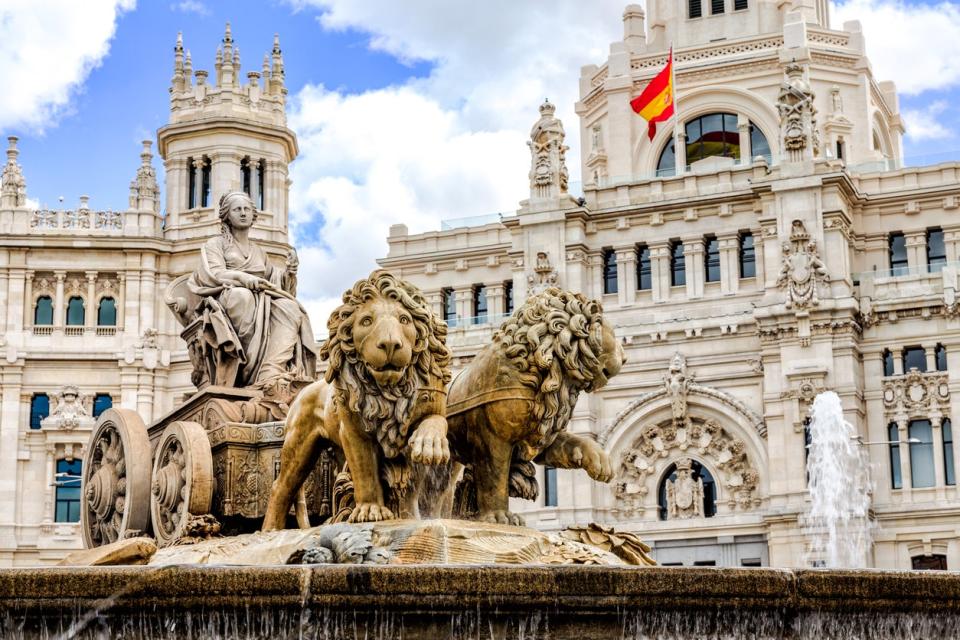Spain travel advice: What are the latest rules and where can I visit?

Spain, Britain’s favourite holiday destination pre-Covid, was among the first countries on the travel corridors list this summer.
It meant that it was exempt from the Foreign Office’s (FCDO) blanket advisory against international travel and holidaymakers didn’t need to quarantine on return to the UK.
But just a short few weeks later, Spain was removed from the “safe” list after a spike in cases, triggering a devastating routine of destinations being struck off from – and very occasionally added to – the travel corridors list every Thursday.
There was at last some good news in the latest travel corridors update: the Canary Islands have returned to the list of “safe” destinations, in time for half-term and potentially for winter sun in the months to come.
But what about visiting the rest of Spain? What are the rules and restrictions in place? Here’s what you need to know.
The following advice applies to mainland Spain as well as the islands, with the exception of the Canary Islands. You can find specific travel advice for the Canary Islands here.
Am I allowed to travel to Spain from the UK?
Technically yes. While the FCDO currently advises against travelling to all of Spain with the exception of the Canary Islands, it is not illegal to travel there. However, if you travel against FCDO advice, it may invalidate your travel insurance.
How can I get there?
There are direct flights from the UK to many major Spanish cities with carriers including Ryanair, easyJet, Wizz Air, British Airways, Air Europa and Iberia.
Alternatively you can catch a ferry – Portsmouth has direct services to Bilbao and Santander, for example. It is also possible to travel from the UK to Spain by train, via France, but bear in mind there may be additional travel restrictions in place.
Will they let me in when I arrive?
Yes, Spain’s borders are open to the UK.
However, the country is currently in a nationwide State of Emergency (from 25 October, for a minimum of 15 days), which means there may be additional local restrictions in place. In some cases, only those with essential reasons for travel – such as work, for transit, or medical purposes – will be permitted to enter or exit a region.
You will also need to fill in the Spanish government’s health form within 48 hours of travel. This will include your contact details as well as your history of exposure to Covid-19. Once you’ve completed the form, you will be sent a QR code, which you will need to show on arrival.
Once you get to Spain, you will also be temperature checked and undergo a visual health assessment. Those presenting with coronavirus symptoms will have to see a health professional.
Will I have to take a Covid-19 PCR test?
No, Spain doesn’t require visitors to have negative Covid-19 PCR test results.
Will I have to quarantine when I arrive?
No, Spain does not require travellers from the UK to quarantine when they enter.
Will I have to quarantine when I come home?
With the exception of the Canary Islands, yes.
The rest of Spain is currently not on the UK government’s travel corridors list, which means those returning from mainland Spain and other islands, such as the Balearics, will need to self-isolate for 14 days.
Can I travel within Spain?
In general yes, but there may be some restrictions on travel due to the current nationwide State of Emergency. This means non-essential travel won’t be allowed.
The FCDO advises checking the region you’re travelling to and from before making your journey as local restrictions can be introduced at short notice.
Transiting through a restricted region is permissible, but you may need to show evidence of an onward journey.
Are hotels open?
Yes, but you should double check.
While hotels have been permitted to open since mid-May, some may have closed after a quieter summer season. This is particularly true in areas affected by additional local restrictions.
Are restaurants, shops and attractions open?
It depends on where you’re visiting.
In areas affected by local restrictions, such as Catalonia, restaurants and bars are closed. In other areas, there’s a curfew starting between 10pm and midnight (you can eat until 1am), until 6am the following morning. Tables are limited to a maximum of 10, although there may be additional restrictions on numbers in place; there are capacity limits and you should allow at least 1.5m for social distancing; and you should expect greater use of digital menus as well as self-service.
Shops are open but there may be limits on capacity, implementation of one-way systems, and the wearing of masks is essential.
Most attractions are open, but again, check whether local restrictions have affected their opening times. Some activities, especially interactive or hand-operated ones, will be closed. You will generally need to book as there will be limits on capacity and there will be one-way systems to minimise contact.
Beach access is similar – there are capacity limits and in some cases you may need to book.
In many cases, including in shops, you will be expected to leave your details to allow contact tracing.
What rules are in place?
Spain has made the wearing of face coverings mandatory for anyone over the age of six on public transport and in many indoor and outdoor public spaces. The only exceptions are for those with disabilities or respiratory conditions, or when you’re eating and drinking or exercising.
You must wear masks when entering beaches, swimming pools or outdoor areas, and when you’re moving around. However, you can take off your mask when you’re swimming, or when you’re sitting or lying in one spot with at least 1.5 metres between you and people outside of your group. All of these areas will also have additional capacity restrictions in place.
Read more
Lockdown tiers: What do the coronavirus restrictions mean for travel?

